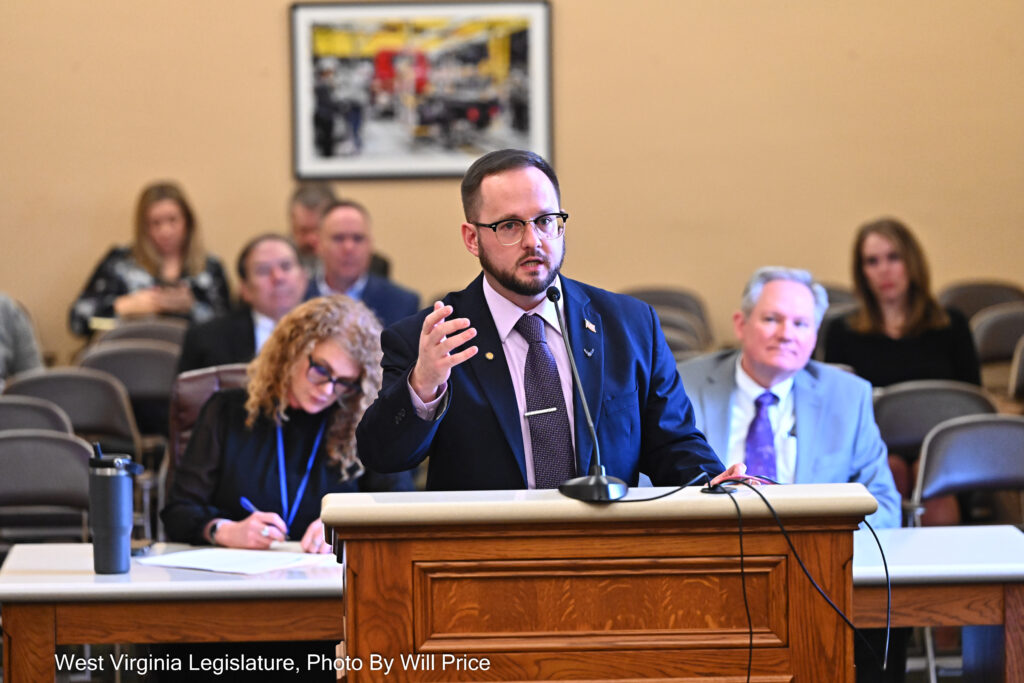Whether or not to teach middle schoolers about fentanyl and overdose-reversing medicine sparked discussion in the House Education Committee, while Senate Education modified a House bill on special education.
Titled Laken’s Law, House Bill 5540 would mandate fentanyl prevention and awareness education, as well as use of naloxone, in grades six through 12.
The bill sparked more than a half hour of discussion and debate in the House Education Committee Wednesday, with many delegates expressing concern about whether it was appropriate to teach sixth graders how to administer opioid-reversing medication.
State Superintendent Michele Blatt told the committee that drug prevention has been a focus of health education in schools for years and reflects the lived reality of many students in the state, even in middle school.
“I think middle school is where a lot of those problems begin,” she said. “One of the surveys that we do, the safe and drug free school survey, students start talking about as early as sixth and seventh grade being exposed to it or having the opportunity to use it. So I don’t think it’s too early to share the messaging of the dangers and the harms of it.”
Fentanyl has been a leading cause of overdose deaths in recent years. But data released last June by the Office of Drug Control Policy revealed a decline in opioid overdose rates, marking a positive turn in the fight against the ongoing drug epidemic. Health officials attribute the positive trend to a combination of factors, including expanded availability of naloxone. Blatt compared training for the use of naloxone products, such as Narcan, to first aid and CPR.
“Sadly, the world we live in now, it may be a matter of the student learns to use it, because they’re going to have to use it on mom or dad at home when they can’t wake up their parents or something,” she said.
The bill was amended to include heroin and other opioids in the new mandated education, and now goes to the House for its consideration.
House Education also discussed:
- HB 5405, Providing additional professional development and support to West Virginia educators through teacher and leader induction and professional growth.
- HB 5553, To provide and change graduation requirements and change duties relating to academic content standards.
- HB 5607, Relating to public charter school’s application for funding
- HB 5650, Allow suspended school personnel to enter school property functions open to the public.
- SB 507, Relating to repeal of WV EDGE.
In the Senate
The Senate Education Committee focused on one Senate bill and two House bills Thursday morning.
House Bill 4860, which originally freed general education teachers from documenting special education accommodations, was hotly debated when it passed through the House Education Committee Jan. 22. Bill sponsor Del. Elliot Pritt, R-Fayette, a middle school teacher, called existing documentation requirements onerous, while critics of the bill raised concern that the bill would open the door for shirking of legal responsibilities to special education students.
Thursday morning, the Senate Education Committee changed the bill to re-introduce some documentation requirements for all teachers. Pritt was on hand to approve of the changes.
“In Fayette County, many other counties right now, we’re required to complete just an onerous amount of daily paperwork to prove that we’re already doing what we’re required to do by law in the first place,” he said. “I spoke with Chairwoman Grady and have agreed with the changes he’s proposed to the bill. It still equals a desired outcome of less onerous paperwork and but still meets, I guess, addresses the concerns that some people had about there being no daily documentation.”
The bill now heads to the full Senate for consideration.
The Senate Education Committee also discussed:
- SB 727 – Revising process for county boards of education to hire support staff
- HB 4768 – Relating to increasing the number of out- of-state medical students receiving in-state tuition rates who agree to practice for a specific time within West Virginia.




















